French elections, the end of era in world politics and South Caucasus Sergey Bogdan's scene-setter
Marine Le Pen, the figure feared by the Western liberal establishment, may win the French presidential elections on Sunday. The result of the vote will affect the continuation of the Russia-Ukraine war, and the Kremlin will celebrate Le Pen's victory as much as a major victory on the front. However, the global nature of French foreign policy means that the consequences of the election may also affect the South Caucasus.
The crack in the Western bloc
Long before the start of the election campaign, it was clear that this time power in France could change radically. Surveys in recent months have shown that half of the voters will vote in the second, decisive round for the "extreme right-wing candidate". In other words, for Marine Le Pen. Her election would have serious consequences for the EU, NATO, and the entire Western community, which have been compared to Britain leaving the EU and President Trump coming to power in the United States. As Western European liberal publications have noted, "it would escalate disputes over the legal foundations of the European Union, and the German-French tandem in the EU leadership would hit a wall."
"The National Union," created by Marine Le Pen in the early 2010s, lacks the radicalism of the former National Front, which was led by her father and later by herself. Le Pen no longer calls for France to leave the EU and Schengen, or for the return of the franc instead of the euro. However, she continues to demand that the EU be made less subservient to the Brussels bureaucracy, and she calls for France withdrawal from the NATO, i.e., a return to the situation of 1966-2009.
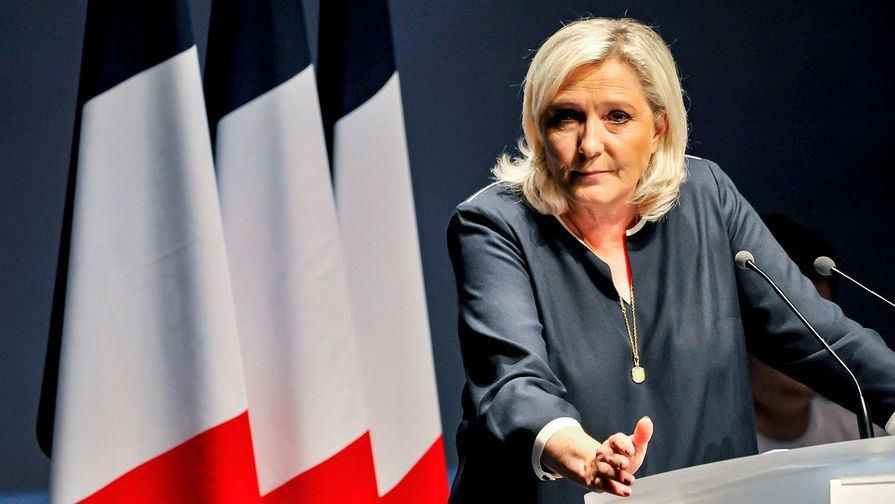
In addition, Le Pen has said she would lift sanctions against Russia, met with Putin and funded political campaigns with a loan from a Russian-Czech bank. Recently, she declared that after the war, Russia could once again become France strategic partner and that a rapprochement between NATO and Moscow was desirable. Once in office, Le Pen could block EU sanctions against Russia or the rearmament of Ukraine. Be that as it may, the West's united front against the Kremlin will weaken.
However, the French will elect her rather for other reasons. Le Pen criticizes the policy of "social cruelty" of the current leadership of the country and calls for significant social support for the working population, such as tax cuts for the majority of the population (VAT from 20% to 5.5%). This bid to mobilize the employed part of the population could lead her to victory.
The fact is that France is in a difficult socio-economic situation, and this is felt by ordinary citizens even at the domestic level. Formally, the country ranks 7th in the world in terms of GDP, but its situation is constantly deteriorating. In 2020, the national debt was as much as 115% of GDP (in neighboring Germany - 68.7%) and the foreign trade deficit reached EUR 64.7 billion that year (a surplus of EUR 183.2 billion in the Federal Republic of Germany). In other words, the EU has been an economic triumph for Germany, but not for France. The latter has suffered from a serious foreign trade deficit for two decades, almost from the very beginning of closer integration with the EU. This is due to deindustrialization: while in 1995 the share of industry in French GDP was 17.5%, in 2019 it was 11%. For example, the number of people employed in the traditionally developed textile industry was only 60,000 last year, although thirty years ago this figure was seven times higher.
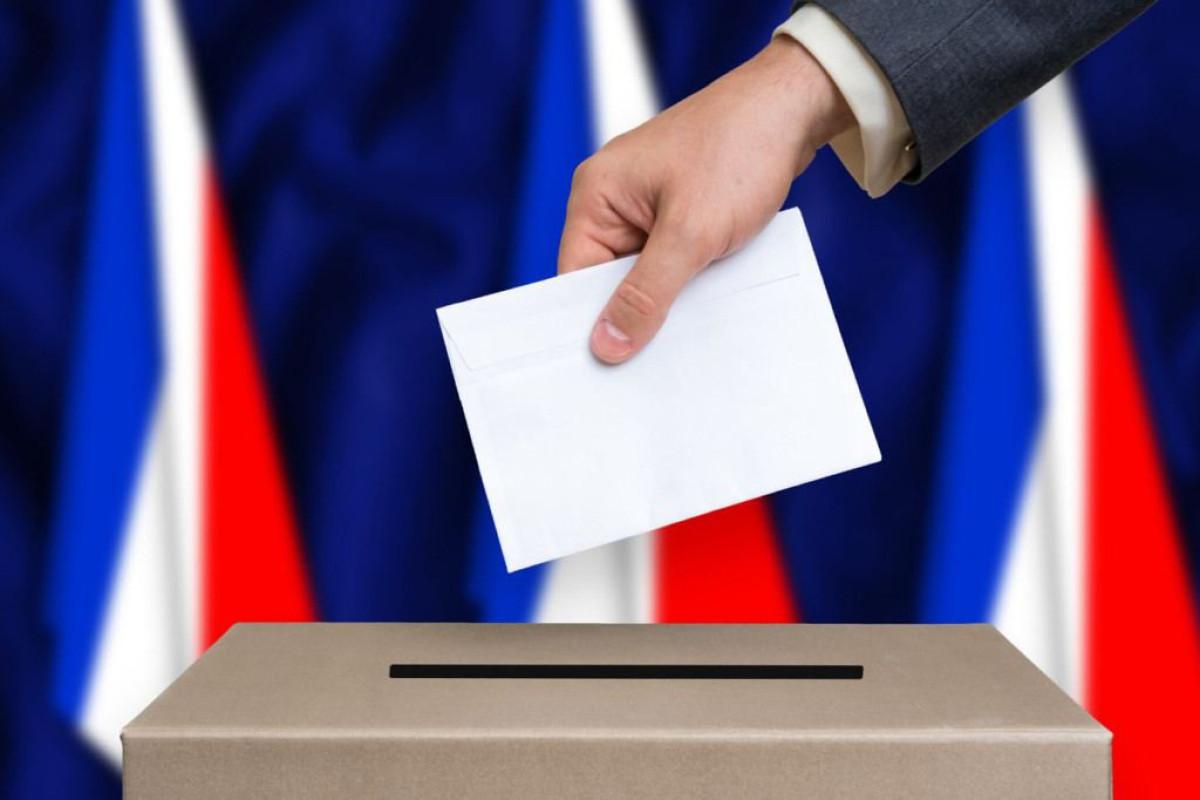
Macron, the current president, is firmly labeled as the "president of the rich," and his decisions such as the reduction of capital income taxes (which benefited only the rich) were illustrative of this. A former member of the Socialist Party, he came to the presidency as a neoliberal, demanding more market, less government. However, public money still went to corporations for some reason: Renault alone received 5 billion in loans from the government during the pandemic. Citizens did not feel much change for the better: yes, Macron's goal of reducing unemployment to 7% was almost achieved, but this was done at the expense of precarious employment - for example, with a minimum wage (EUR 1270) and short-term contracts.
From military putsch to "Reconquista"
In such a situation, it is not surprising that France has recently begun to noticeably lose stability. And it is not just because of high-profile terrorist attacks. The elections illustrated the tendency toward a general radicalization of French politics. Already in the first round, every third Frenchman voted for the extreme right: Le Pen got 23.1% and Eric Zemmour 7.1%. Were it not for the latter, Le Pen could have beaten the incumbent President Macron (who received 27.8%) already in the first round.
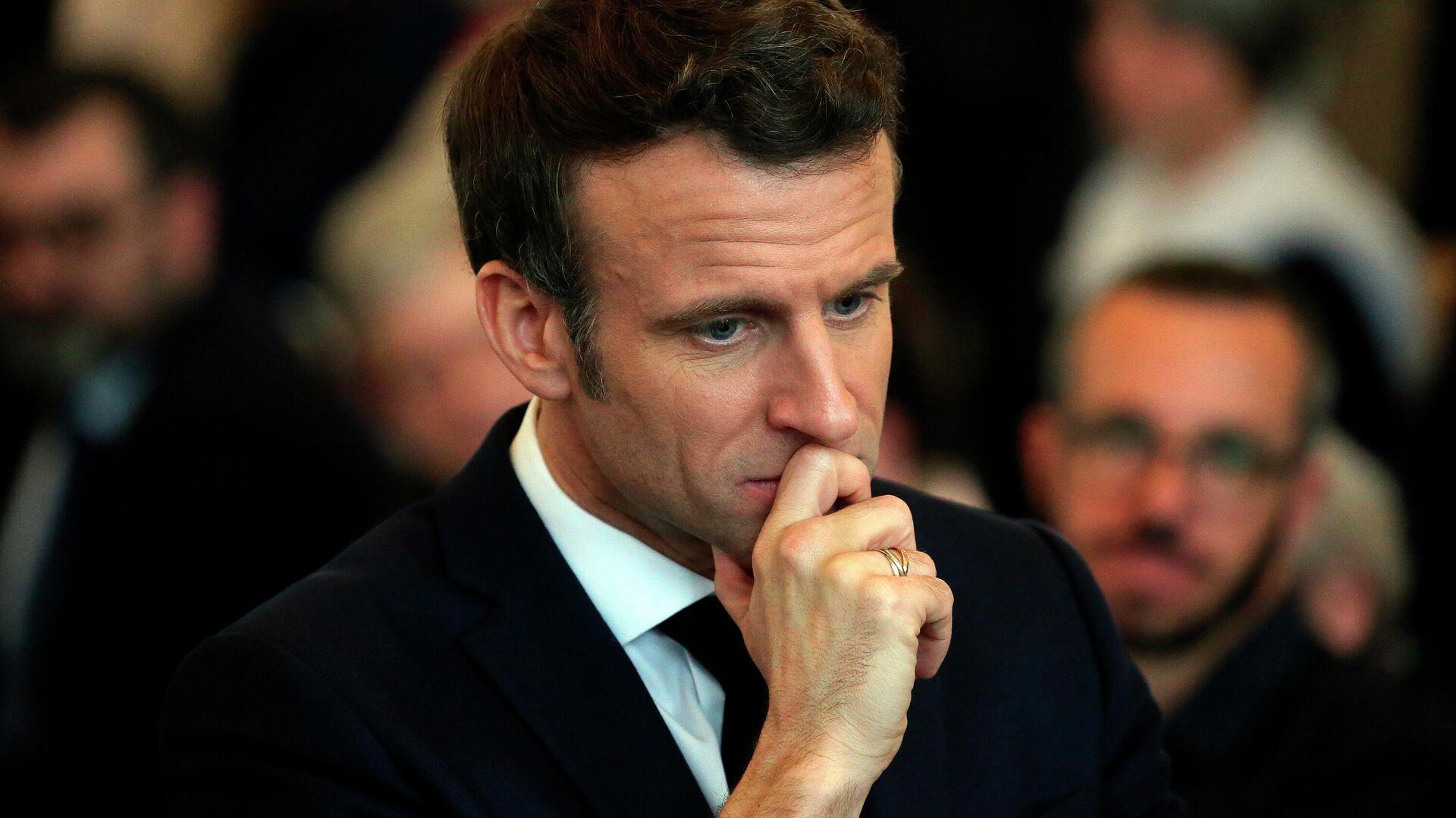
Although polls show that the French are more concerned about the economic situation and the environment, the election campaign was full of themes of fighting immigration and a certain "Muslim threat". Zemmour even founded a party late last year with the provocative name Reconquista, hinting that he was continuing the so-called "liberation" of Europe from Muslims - after all, the first Reconquista meant the destruction of the Muslim civilization in Spain along with its bearers. The latter, by the way, was in no way "foreign," but lasted even longer than the Christian civilization.
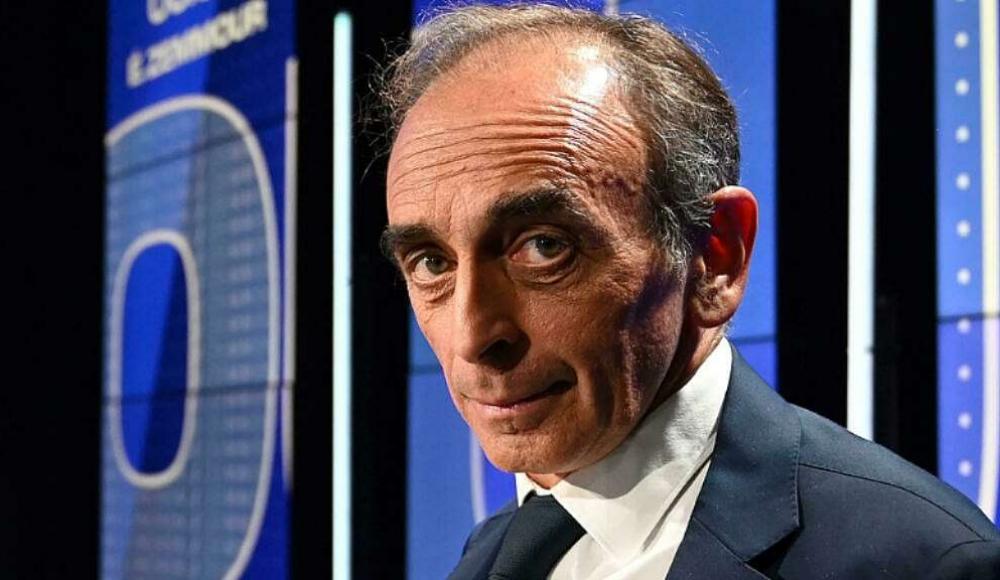
In other words, French policy in recent years has shifted to the right, which has meant, in particular, maintaining the established hierarchy in power and society as well as the state ideology, above all militant secularism. It entailed a continuation of the confrontation with French citizens-immigrants from the colonies or their descendants. When French politicians begin to argue about the danger of Islam, the Islamist threat, the destabilization of society through the undermining of secularism, and the rise of crime associated with "bands from the suburbs," one should not take this merely as a kind of idealism. We are talking about the fact that young people living on the outskirts of big cities, who see no prospects for themselves in the current politics, are looking for ways to express their protest, associating sometimes with religious extremists and becoming a "threat" to the dominance of the current French elite. Social structures are already emerging in the country, beginning to challenge the state. This is already evident in large ghettos (the port city of Marseille is a prime example), to which outsiders and the authorities have no access.
In this context, threats of intervention by the security forces in politics have resurfaced in France. On April 24, 2021, on the anniversary of the 1961 putsch in the French army, retired captain Jean-Pierre Fabre-Bernadac published on his blog a text warning of the impending "disintegration of the motherland" and calling for a decisive reordering of the country. Otherwise, the men in uniform will get down to business. It was reprinted by a right-wing magazine, and in just a couple of weeks, it was signed by 25 retired generals and 3,000 more modestly-ranked retired officers.
Bernadac later published the arguments of the famous French strategist, retired General Vincennes Desportes, who generally agreed with him and called for attention to "operational defense on French territory itself," for which a territorial force should be built. The captain later added: "We are in contact with the military in the service. They agree." In the army, analysts believe, there have long been radical groups, and in the police and gendarmerie, this is evident from the radical right-wing orientation of the trade unions.
France borders - in Africa and the Pacific Ocean
All this is happening not in a peripheral developing country, but in world power with a nuclear arsenal. France's place in the world order system is, incidentally, close to the model to which the Russian Federation has been striving until recently. As Charles de Gaulle wrote, "France is only a true France if it is at the forefront... France devoid of greatness ceases to be France." Publications of "Edinaya Rossiya", the Kremlin party in power, did not hide their interest in the French model and willingly quoted this kind of reasoning with many hints.
If Russia is proud of its continental length, France is proud of its maritime equivalent. In addition to its five overseas departments, Paris controls many overseas territories, making France the second largest ocean area under its sovereignty after the United States and before China. 93% of France's exclusive economic zone is in the Indian and Pacific Oceans. This rich colonial legacy is guarded by the seventh-largest navy in the world (by displacement). The army does not remain idle either: out of 205,700 of its personnel, 30,000 participated in combat operations last year (more than 5,000 in one Sahel, for example, now Paris is trying to complete a nine-year military intervention in Mali).
Unlike Moscow, Paris - relying on soft power and unashamedly applying hard political and economic tools - faces little condemnation as it tries to maintain its de facto sphere of influence in Africa (including Cote d'Ivoire, Gabon, Cameroon, Congo) or considerable influence in a number of Arab countries (like Lebanon). Macron does not hesitate to tell Lebanese leaders what and how they should change in their country. In justifying the French intervention in Chad, French Foreign Minister Jean-Yves Le Drian explains that "Europe's southern border" runs in Chad. All this is presented in a plausible way - as "aid", "the fight against terrorism", "peacekeeping", etc.
France not only wants to maintain its sphere of influence but also to be able to oppose the U.S., China, and other world powers. But the achievements of Paris in this respect are small. For example, in international politics since the 2000s, Paris has tried to build the Paris-Deli-Canberra line, both to protect its giant maritime possessions in the Indian and Pacific Oceans and to oppose China. In September 2021, however, the United States and Britain scandalously persuaded Australia to abandon its friendship with Paris and form a bloc with them. The Australians were also persuaded to abandon the 12 new French submarines ordered, which was the hardest blow to the French defense industry (several years earlier it had already suffered from the failure of the contract for the delivery of Mistral helicopter carriers to Russia). In other words, Macron has nothing to be particularly proud of in the field of international politics.
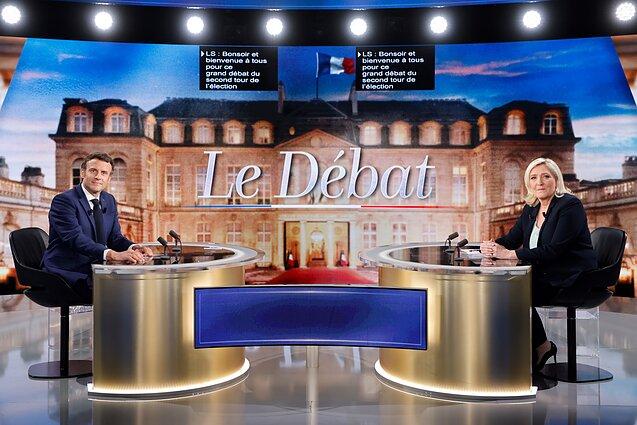
French elections and the South Caucasus
With such a wide scope of Paris' global strategy, the Caucasus region also occupies someplace in it. France is known for its traditionally favorable attitude towards Armenia. Contacts with France are an important priority in international politics for the Armenian establishment. Armenia is even ready to become part of the "French world" and join the International Organization of Cooperation of French-speaking Countries, which is dear to the French heart. Yerevan was even offered the opportunity to host the summit of the organization.
Armenian authorities are eager to visit their French counterparts on a bilateral level. The last time the Armenian Prime Minister Nikol Pashinyan flew to France on a working visit was on March 8-9. Before that, he was there for his last birthday in June 2021. Then he received some support from Macron, when the latter made a number of curious statements, calling on the parties to withdraw back to the positions as of May 11 (i.e. requiring the Azerbaijani army to retreat), talking about "Nagorno Karabakh" (dividing the historical region in favor of radical circles in Armenia), stopped to protect the Christian cultural heritage in Karabakh (alluding to the identity of Armenian and Christian).
By the way, this attitude toward Christian heritage on the part of the militantly secular French government should not be surprising - suffice it to recall the French role in the Crusades. Relations with Armenia and the Lebanese Maronite Christians, opposition to Turkey's policy and its accession to the EU, and much more, are based on this historical legacy.
However, a number of recent events may indicate that Paris is inclined to reconsider this course. For example, Macron's visit to Armenia as expected last fall did not take place and he also did not show up at the annual meeting of the Coordinating Council of the Armenian organizations in France after the beginning of the pre-election campaign.
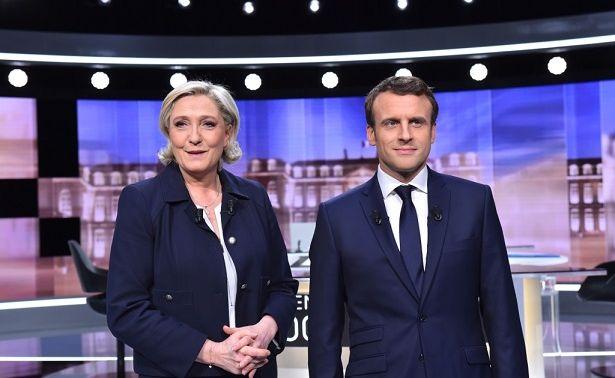
There is little in the way of economic ties between Paris and Yerevan. Despite all the fluctuations in recent years related to oil prices, the pandemic, etc., the volume of trade between Azerbaijan and France is measured in hundreds of millions of euros (with a huge surplus for Baku), and between France and Armenia - in tens (with a negative balance for Yerevan).
Tigran Yegavyan, a French diaspora analyst, notes a peculiarity of Armenian-French relations as "a deep imbalance between the sentimental dimension, friendship, memory, culture and structural weakness of bilateral trade." Of course, in March Macron announced that the French government would create a special fund to provide large-scale assistance to Armenia. Yerevan and Paris have developed a "French-Armenian economic roadmap" for five years, as well as a number of joint programs.
However, as Yegavyan notes, although Macron's speech during the French-Armenian Forum in Paris in March was perceived by many as an invitation for Yerevan to join the EU, "neither France nor the European Union is able to give minimum security guarantees to Armenia... this long-planned forum was a 'compensation' for Armenians abandoned by the West, a country which has nothing to expect from its European friends except the promise of $2.6 billion in conditional economic aid". So far, however, Paris and some other European countries have rather not abandoned Armenia, but are trying to change its geopolitical orientation, relying on Pashinyan.
The French elections reflect the transformation of the fundamental political structures of the West. The coming to power of figures like Trump or Le Pen, the withdrawal of countries from the EU, and the war in the center of Europe indicate the arrival of a new era in world history. A new era is new because it means a change in the rules and norms of world politics.
Even if the current president Macron remains in power in Paris, he will have to adjust his policies to take into account the results of the election, which testified to the desire of French society to change Paris's policies in many directions. Among other things, this means the possibility of a new, more balanced course towards the South Caucasus. This will be facilitated by the West's desire to look for new sources of energy supplies in the context of a breakdown in relations with Russia.








